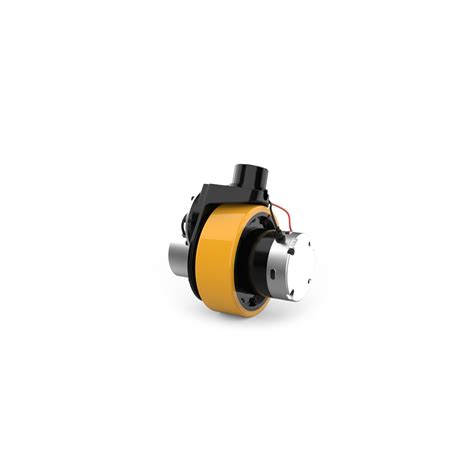Industrial automation has come a long way since its inception, transforming the way industries operate and increasing productivity manifold. At the heart of this revolution are advanced technologies, including AC drives, which have emerged as a game-changer in the industrial automation landscape. In this article, we will delve into the world of AC drives, exploring their significance, benefits, working mechanisms, and applications in various industries.
AC drives, also known as variable frequency drives (VFDs), are electronic devices that control the speed of AC motors by adjusting the frequency and voltage of the electrical power supplied to them. This technology has gained widespread acceptance across various industries, including manufacturing, oil and gas, water treatment, and HVAC, among others.
The Importance of AC Drives in Industrial Automation
AC drives play a pivotal role in industrial automation by offering a high degree of control and flexibility in motor operation. They enable the precise control of motor speed, torque, and direction, resulting in improved process efficiency, reduced energy consumption, and enhanced product quality. The widespread adoption of AC drives can be attributed to their ability to provide:
- Improved motor control and efficiency
- Reduced energy consumption and costs
- Increased productivity and throughput
- Enhanced product quality and reliability
- Simplified maintenance and troubleshooting

How AC Drives Work
AC drives work by converting the fixed-frequency AC power from the mains to a variable-frequency AC power that can be adjusted to match the requirements of the motor. This is achieved through a process known as pulse-width modulation (PWM), which involves the rapid switching of power electronic devices, such as insulated gate bipolar transistors (IGBTs), to create a high-frequency AC waveform.
The AC drive consists of three primary components:
- Rectifier: Converts the AC power from the mains to a DC power.
- Inverter: Converts the DC power to a variable-frequency AC power using PWM.
- Control Unit: Regulates the operation of the inverter and controls the motor speed.
Benefits of AC Drives
The benefits of AC drives are numerous and have contributed to their widespread adoption across various industries. Some of the key advantages of AC drives include:
- Energy Efficiency: AC drives can significantly reduce energy consumption by optimizing motor speed and torque.
- Improved Process Control: AC drives enable precise control of motor speed, resulting in improved process efficiency and product quality.
- Increased Productivity: AC drives can increase productivity by enabling faster processing times and reducing downtime.
- Reduced Maintenance: AC drives can reduce maintenance requirements by minimizing wear and tear on motors and other equipment.

Applications of AC Drives
AC drives have a wide range of applications across various industries, including:
- Manufacturing: AC drives are used in manufacturing to control the speed of motors used in conveyor systems, pumps, and fans.
- Oil and Gas: AC drives are used in the oil and gas industry to control the speed of motors used in pumping and compression systems.
- Water Treatment: AC drives are used in water treatment plants to control the speed of motors used in pumps and aerators.
- HVAC: AC drives are used in HVAC systems to control the speed of motors used in fans and pumps.
Challenges and Limitations of AC Drives
While AC drives offer numerous benefits, they also have some challenges and limitations, including:
- High Upfront Costs: AC drives can be expensive to purchase and install.
- Complexity: AC drives can be complex to install and configure.
- Maintenance Requirements: AC drives require regular maintenance to ensure optimal performance.

Future of AC Drives
The future of AC drives looks promising, with advances in technology and the increasing demand for energy efficiency and process control. Some of the trends that are expected to shape the future of AC drives include:
- Increased Adoption of IoT: The increasing adoption of IoT is expected to drive the demand for AC drives that can integrate with IoT systems.
- Advances in Power Electronics: Advances in power electronics are expected to improve the efficiency and performance of AC drives.
- Growing Demand for Energy Efficiency: The growing demand for energy efficiency is expected to drive the demand for AC drives that can optimize energy consumption.






Conclusion
AC drives have revolutionized the industrial automation landscape by offering a high degree of control and flexibility in motor operation. Their ability to optimize energy consumption, improve process control, and increase productivity has made them an essential component in various industries. As technology continues to evolve, we can expect to see even more advanced AC drives that can integrate with IoT systems, improve efficiency, and reduce costs.
FAQ
-
What is an AC drive?
An AC drive, also known as a variable frequency drive (VFD), is an electronic device that controls the speed of an AC motor by adjusting the frequency and voltage of the electrical power supplied to it.
-
What are the benefits of using an AC drive?
The benefits of using an AC drive include energy efficiency, improved process control, increased productivity, and reduced maintenance requirements.
-
What are the applications of AC drives?
AC drives have a wide range of applications across various industries, including manufacturing, oil and gas, water treatment, and HVAC.
-
What are the challenges and limitations of AC drives?
The challenges and limitations of AC drives include high upfront costs, complexity, and maintenance requirements.
What is an AC drive?
+An AC drive, also known as a variable frequency drive (VFD), is an electronic device that controls the speed of an AC motor by adjusting the frequency and voltage of the electrical power supplied to it.
What are the benefits of using an AC drive?
+The benefits of using an AC drive include energy efficiency, improved process control, increased productivity, and reduced maintenance requirements.
What are the applications of AC drives?
+AC drives have a wide range of applications across various industries, including manufacturing, oil and gas, water treatment, and HVAC.
